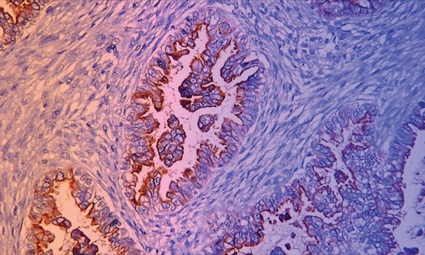
NASHVILLE, Tenn.—Fragmentation of care is often associated with disadvantaged populations and poorer healthcare outcomes. Paradoxically, a recent study found better survival in pancreatic cancer patients who sought treatment at multiple institutions.
“The care of pancreatic cancer patients involves coordination of specialized multidisciplinary providers and involves multimodal therapy, including surgical resection and chemotherapy,” said Victoria Bouillon, MD, a general surgery resident at the University of South Alabama Medical Center, in Mobile, at the 2022 Southeastern Surgical Congress.
But surgeons who have the expertise to provide these operations are not everywhere, requiring patients to travel for adequate surgical resections. Dr. Bouillon and her colleagues conducted a study to identify patient factors predictive of fragmentation of care, and to assess how this fragmentation affects overall survival in pancreatic cancer.
Using the National Cancer Database, they identified 20,013 patients diagnosed with nonmetastatic pancreatic ductal adenocarcinoma between 2005 and 2016. Of those, 4,822 (24%) received fragmented care, while 15,191 (75%) underwent all of their oncologic care at a single institution.
“We saw a statistically significant increased rate of fragmented care amongst younger patients (under 80), amongst nonminority white patients and amongst patients in the Northeast and Midwest,” Dr. Bouillon said, noting also a statistically increased rate of fragmented care in patients with fewer comorbidities, higher socioeconomic status and private insurance.

“We also saw a statistically significant increased rate of fragmentation amongst patients who had advanced stage disease, amongst those who received care at academic centers, and amongst those who received care at high-volume centers,” she said.
A multivariable analysis showed most of those associations remained independent associations—less fragmentation among older and minority patients, and more fragmentation in patients in the Northeast and Midwest.
Looking at 30-day, 90-day and overall survival, Dr. Bouillon and her colleagues found decreased mortality at 30 and 90 days and a 10% improvement in overall survival in patients who received fragmented care.
The study was done on a national level, but Dr. Bouillon scaled it down to the state level, showing how fragmentation may come about. In Alabama, although medical oncologists are distributed evenly throughout the state, only three counties have surgeons trained to perform the types of resections needed to treat pancreatic ductal adenocarcinoma.
“So, patients likely have to travel farther distances for their pancreatic resections while they have the option to receive chemotherapy at home,” she said.
Dr. Bouillon acknowledged the study’s limitations: using only the National Cancer Database, which accepts data on patients only from Commission on Cancer–accredited centers, and having no data on travel or recurrence rates. But their study suggests that fragmented care in pancreatic cancer may indicate higher access to care and confer a protective effect.
This article is from the April 2022 print issue.



Please log in to post a comment